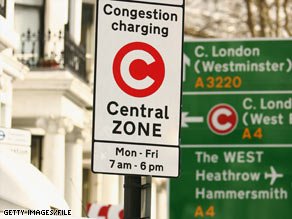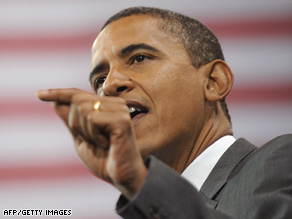
Washington Post Staff Writers
Tuesday, September 23, 2008; 11:54 AM
The nation's top economic policymakers acknowledged this morning that an already extraordinary series of government actions has failed to stabilize global financial markets and said that Congress must act quickly on a proposed bailout plan to avoid dire consequences for the U.S. economy.
But the proposal received a skeptical reception from both Democratic and Republican members of the Senate Banking Committee, who raised a number of questions about the plan and demanded protections for the taxpayers -- including beleaguered homeowners -- who are being asked to bear the estimated $700 billion burden of the program.
Arguing that the crisis on Wall Street threatens the jobs, savings and finances of every American, Federal Reserve Chairman Ben S. Bernanke and Treasury Secretary Henry M. Paulson Jr. said in congressional testimony that debates about broader financial system reform should wait until the current crisis is resolved.
Postponing action on the Bush administration's bailout proposal is to risk "a continuing series of financial institution failures and frozen credit markets that threaten American families' financial well-being, the viability of businesses both small and large, and the very health of our economy," Paulson said.
His comments, along with those by Bernanke, were delivered before the banking committee this morning as the Bush administration continues to push for quick action on a proposal that amounts to one of the federal government's deepest-ever interventions into the economy.
President Bush, in New York to speak before the United Nations, said he was "confident . . . that there will be a bipartisan bill that the Republicans and Democrats will come together to get this piece of legislation passed."
In opening statements, Sen. Christopher J. Dodd (D-Conn.), the committee chairman, and Sen. Richard C. Shelby (Ala.), the top Republican on the panel, criticized what they said was the ad hoc nature of the government's response to the financial crisis and complained that the administration's proposal lacks detail.
Senators also said any legislation should help homeowners who are struggling to pay their mortgages remain in their homes.
"Unfortunately the Treasury Department's latest proposal continues the ad hoc approach but on a much grander scale," Shelby told the panel. In addition, he said, "we've been given no credible assurances that this plan will work." The nation could well spend $700 billion or even $1 trillion "and not solve the problem," he said.
Paulson said in response to criticism of the Treasury's original three-page proposal that the idea was to work with Congress on a detailed package. He said it would have been "presumptuous," for example, to include a detailed mechanism for oversight, which is "the role of Congress."
He added: "I'm frustrated that the taxpayers are already on the hook. The best protection for the taxpayers is to have this work."
Paulson said longer-term reform to fix an "outdated regulatory structure" and address "other flaws and excesses in the system" should be taken up later. "It can't be addressed this week."
'Business' 카테고리의 다른 글
| Bernanke Tells Congress That U.S. Economy Is Faltering (0) | 2008.09.25 |
|---|---|
| Dow Up in Morning Trading as Policymakers Testify on Bailout (0) | 2008.09.24 |
| Hill Clashes on Rescue Plan; Dollar Drags Down Markets Lawmakers Struggle to Gain Support For Bailout (0) | 2008.09.23 |
| Lehman Unit Sale (CNN) (0) | 2008.09.21 |
| Bush Administration Seeks $700B for Economic Bailout (0) | 2008.09.21 |




